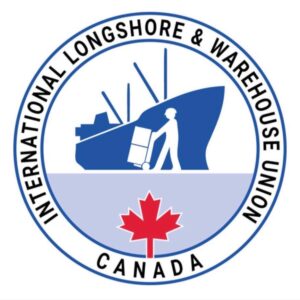

Members of the International Longshore and Warehouse Union who work at ports in the U.S. will not work vessels that are diverted to America during the ongoing strike by ILWU Canada’s rank and file, the union’s U.S. leader has said.
“The ILWU will not be unloading Canadian bound cargo in solidarity with our brothers and sisters in ILWU Canada,” ILWU U.S. President Willie Adams announced July 9.
“I promise you: not one ship that leaves here (in Vancouver) will get worked on in Southern California,” ILWU Local 13 President Gary Herrera told assembled strikers on July 9.
The remarks came as members of ILWU Canada conduct an ongoing labor strike against the BC Maritime Employers Association (BCMEA) which represents employers and operators at West Coast Canadian ports.
The union launched its strike on July 1, following months of negotiations. The previous contract between the ILWU and BCMEA expired on March 31, but longshore labor stayed on the job until the recent breakdown in negotiations.
“Our members’ families are facing spiraling food bills, housing costs and interest rates,” ILWU Canada President Rob Ashton said in a July 6 statement. “All we’re asking from employers is to share some of the wealth our labor is creating for them through a fair, reasonable increase in wages, and to ensure our members can continue to do that work with respect and dignity.”
“The reality is,” Ashton’s statement continued, “our people do hard work under difficult, often dangerous conditions, and they kept Canada’s economy moving through the worst of the pandemic.”
The BCMEA has said that a sticking point in negotiations is that the union’s attempting to increase its dominion to include work currently outside its jurisdiction.
“ILWU Canada is attempting to aggressively expand their scope and re-define Regular Maintenance Work far beyond what is set out in the industry-wide agreement, which has been legally well established for decades,” the employers’ group said.
“Changing this definition,” the BCMEA said, “would result in immediate and significant impacts to terminal operations.”

